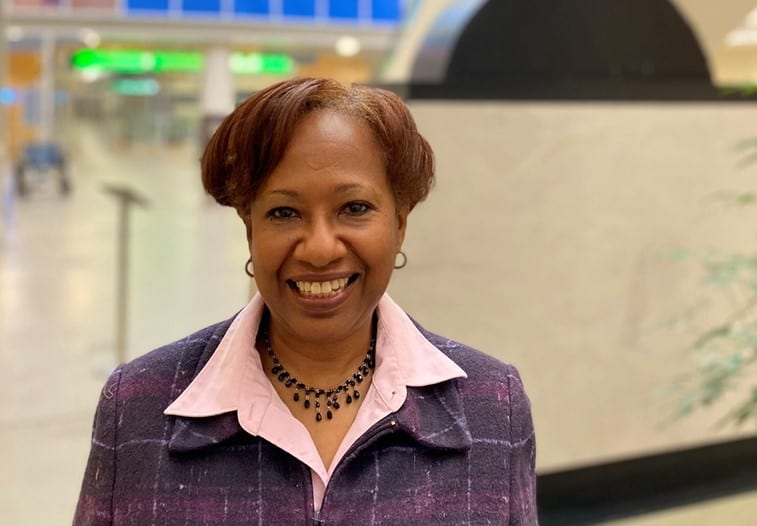Diversity, Equity and Inclusion are an important part of the Columbus Regional Airport Authority’s strategic priorities. In part one of our spotlight on DEI, we’ll share how CRAA is approaching DEI, and who’s leading the way.
“CRAA’s DEI Strategic Blueprint makes it clear who we are and what we value,” says Floria Washington, Human Resources Program Manager, Learning, Development, Diversity & Inclusion for CRAA. “We are continuing to create a culture where representation, opportunity and inclusion are essential.”
Making real change in DEI isn’t new to Floria, who is leading CRAA’s DEI efforts. Early in her career, she served as the first field diversity coordinator for a major airline’s 10,000-employee maintenance and engineering center – that is where she learned the impact and relationship of diversity programs to great business results.
“At the time, it was the No. 1 airline and a frontrunner in the diversity space,” Floria explains. “The airline defined and communicated the business case for diversity by connecting the diversity of their employees to their current and future customers.”
Now, 20 years later, Floria is leading CRAA’s DEI strategy from a new lens. The journey started with listening to employees. Guided by Floria and consultant Todd Corley, founder and leader of the TAPO Institute, the listening sessions shaped CRAA’s strategy.
“Our cultural transformation is based on what we heard from our own employees,” explains Floria, and about a third of the workforce participated. “The listening sessions were powerful. Employees came to the sessions with dignity and respect for themselves and their co-workers. These were not ‘gripe sessions.’ When they talked about what’s possible – employees spoke with intention and clarity about what inclusion means and why inclusion is important to the success of our business. No matter who we talked to, employees want CRAA to deliver excellent business results and many were willing to share their ideas on how to make it happen. It was an opportunity for all employees to speak safely with their own voices.”
While the sessions were productive, uplifting and hopeful Floria says, “We need to realize that not everybody may experience working here in the same way. It’s important to step back and really listen to understand.”
“Between our initial DEI discussions and delivering a strategy, there was a pandemic within a pandemic, affecting our health, social identity and culture,” she says, noting the impact of both COVID and social injustice. “We realized the significance of creating the space and opportunity for Black/African American employees, other employees of color and white employees to speak about their experiences in the workplace and participate in creating the vision and actions for a culture of trust and respect.”
“The Columbus Regional Airport Authority is a unique place, it’s a city within a city,” says Todd. “Their thoughtful and intentional approach to convene and actively listen to its associates about creating a connected community, led by inclusive leadership, serves as a model for businesses and municipalities. By anchoring their business strategy to their diversity and inclusion roadmap, they show the way forward in how leaders and essential workers can collaboratively support the greater social good.”
We can’t embrace change if we don’t take a look at the whole picture. Culture change requires involvement from the whole organization. “Our leaders and employees have a responsibility to practice trust and respect and hold each other accountable to show up in those ways,” Floria says.




